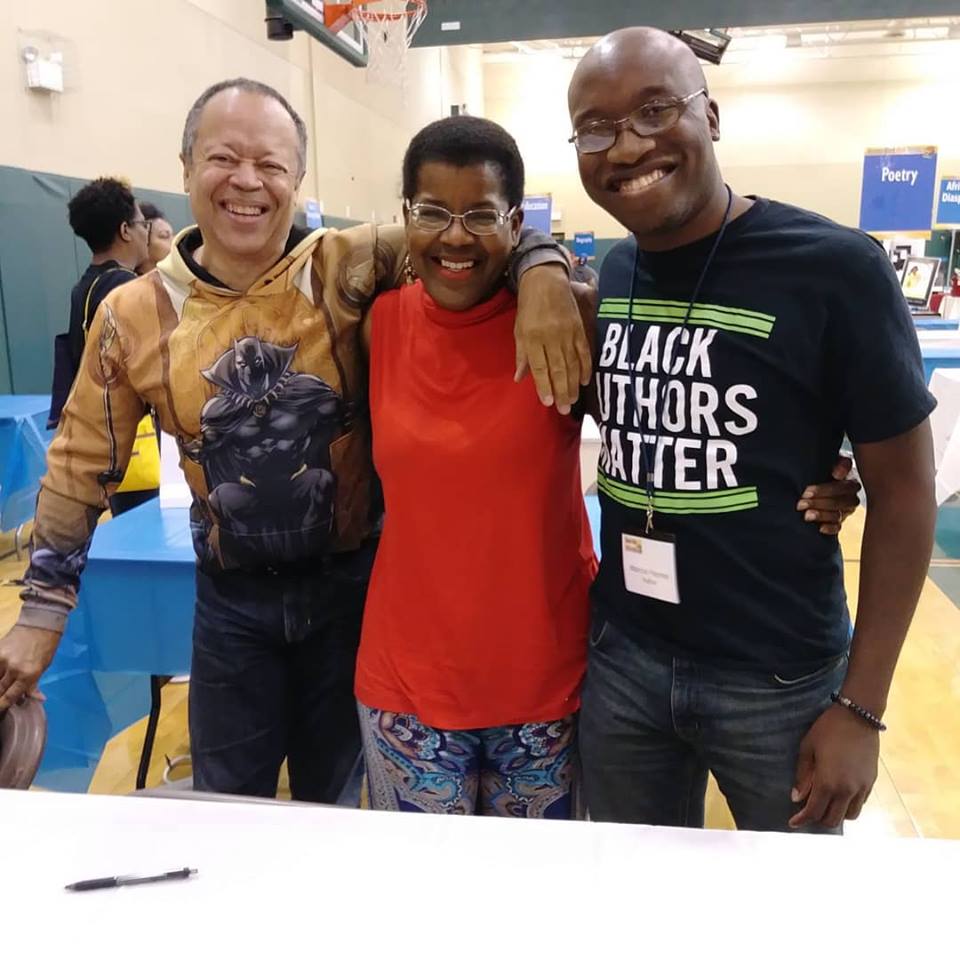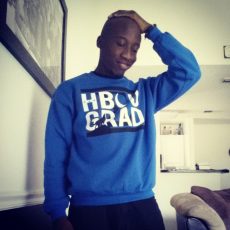This content is being reviewed in light of recent changes to federal guidance.
Black Speculative Fiction On the Rise
 In an age where Luke Cage can break Netflix, FIYAH literary magazine can win a World Fantasy Award, and speculative fiction legends Tananarive Due and Steven Barnes can give keynote speeches at the National Black Book Festival, it is clear that things are changing for creators of Black Speculative Fiction. And the fact that all of these things occurred during Black Speculative Fiction Month, a celebration of Black fans and creators of genre fiction, is even more evidence of the genre’s growth. Thanks to Black speculative fiction icons Milton Davis and Balogun Ojetade, each October has been designated as a month to celebrate the accomplishments of Black people in fantasy, science fiction, horror, and alternate history. Knowing this, Due and Barnes were able to use Black Speculative Fiction Month and their platform to advocate even more for the importance of Black Speculative fiction.
In an age where Luke Cage can break Netflix, FIYAH literary magazine can win a World Fantasy Award, and speculative fiction legends Tananarive Due and Steven Barnes can give keynote speeches at the National Black Book Festival, it is clear that things are changing for creators of Black Speculative Fiction. And the fact that all of these things occurred during Black Speculative Fiction Month, a celebration of Black fans and creators of genre fiction, is even more evidence of the genre’s growth. Thanks to Black speculative fiction icons Milton Davis and Balogun Ojetade, each October has been designated as a month to celebrate the accomplishments of Black people in fantasy, science fiction, horror, and alternate history. Knowing this, Due and Barnes were able to use Black Speculative Fiction Month and their platform to advocate even more for the importance of Black Speculative fiction.
Sitting in the audience of Due and Barnes’ talk, it is hard to believe how much change has happened at the festival in such a short time. In 2015, I attended the festival and was faced with outright hostility for bringing something “unholy” into a Black book festival located in a deep south church. As a Black writer of fantasy and science fiction, it is often difficult to find where you fit in. Traditional conventions (cons) are overwhelmingly concerned with whiteness, and most Black festivals, conferences, and cons do not always understand the purpose of Blackness in the speculative genres. The fact that Due and Barnes were brought on as featured authors is a testament to changing views on speculative fiction, and while a large part of this can be attributed to the massive successes of “Get Out“ and “Black Panther”; there is more to the cultural shift than those two films.
Until very recently, Black speculative fiction began and ended with Octavia Butler; Due and Barnes acknowledged this history. The fact that Butler was able to weave racial, gendered, and sexuality-based critiques into science fiction was considered an anomaly, despite the fact that since speculative fiction, in general, was designed to challenge world views it would make sense that Black authors would challenge perceptions about Black people with speculative fiction. The prejudice against Black Speculative Fiction was so strong that even a tale as blatantly speculative as Toni Morrison’s Beloved was denied the label of horror because it was “too good” and “too Black”. The general attitudes of Black audiences reflected this distaste with Black Speculative Fiction, and the audiences of the National Black Book Festival were unfortunately not exempt. Brandon Massey, an Atlanta-based Black horror author, faced some scrutiny as one of the festival’s earliest featured writers, and in the years that I have been aware of the festival, fewer than fifteen Black speculative authors have attended there.

Marcus Haynes (@LooseAsADEUCE) is a doctoral student in Humanities (English & African American Studies) at Clark Atlanta University. He is a published author, instructor, geek, and scholar in Black Speculative Fiction.